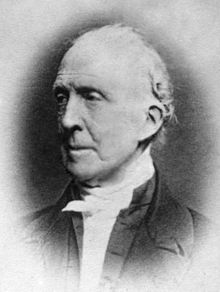Josiah Quincy III
| Josiah Quincy III | |
|---|---|
 |
|
| Member of the U.S. House of Representatives from Massachusetts's 1st district |
|
|
In office March 4, 1805 – March 3, 1813 |
|
| Preceded by | William Eustis |
| Succeeded by | Artemas Ward Jr. |
| 2nd Mayor of Boston, Massachusetts | |
|
In office May 1, 1823 – January 5, 1829 |
|
| Preceded by | John Phillips |
| Succeeded by | Harrison Gray Otis |
| Speaker of the Massachusetts House of Representatives | |
|
In office January 10, 1821 – 1822 |
|
| Preceded by | Elijah H. Mills |
| Succeeded by | Luther Lawrence |
| 16th President of Harvard University | |
|
In office 1829–1845 |
|
| Preceded by | John Thornton Kirkland |
| Succeeded by | Edward Everett |
| Personal details | |
| Born |
February 4, 1772 Boston, Massachusetts |
| Died | July 1, 1864 (aged 92) Quincy, Massachusetts |
| Resting place | Mount Auburn Cemetery |
| Political party | Federalist |
| Spouse(s) | Eliza Susan Morton |
| Children | Eliza Susan Quincy, Josiah Quincy, Jr., Abigail Phillips Quincy, Maria Sophia Quincy, Margaret Morton Quincy, Edmund Quincy, Anna Cabot Lowell Quincy |
| Alma mater | Harvard |
| Profession | Politician, university president |
| Religion | Unitarian |
Josiah Quincy III (/ˈkwɪnzi/; February 4, 1772 – July 1, 1864) was a U.S. educator and political figure. He was a member of the U.S. House of Representatives (1805–1813), Mayor of Boston (1823–1828), and President of Harvard University (1829–1845). The historic Quincy Market in downtown Boston is named in his honor.
Quincy, the son of Josiah Quincy II and Abigail Phillips, was born in Boston, on that part of Washington Street that was then known as Marlborough Street. His father had traveled to England in 1774, partly for his health but mainly as an agent of the patriot cause to with the friends of the colonists in London. Josiah Quincy II died off the coast of Gloucester on April 26, 1775. His son, young Josiah, was not yet three years old.
He entered Phillips Academy, Andover, when it opened in 1778, and graduated from Harvard in 1790. After his graduation from Harvard he studied law for three years under the tutorship of William Tudor. Quincy was admitted to the bar in 1793, but was never a prominent advocate.
In 1797 Quincy married Eliza Susan Morton of New York, younger sister of Jacob Morton. They had seven children: Eliza Susan Quincy, Josiah Quincy, Jr., Abigail Phillips Quincy, Maria Sophia Quincy, Margaret Morton Quincy, Edmund Quincy, and Anna Cabot Lowell Quincy.
In 1798 Quincy was appointed Boston Town Orator by the Board of Selectmen, and in 1800 he was elected to the School Committee. Quincy became a leader of the Federalist party in Massachusetts, was an unsuccessful candidate for the United States House of Representatives in 1800, and served in the Massachusetts Senate in 1804–5. He was elected a Fellow of the American Academy of Arts and Sciences in 1803.
...
Wikipedia
